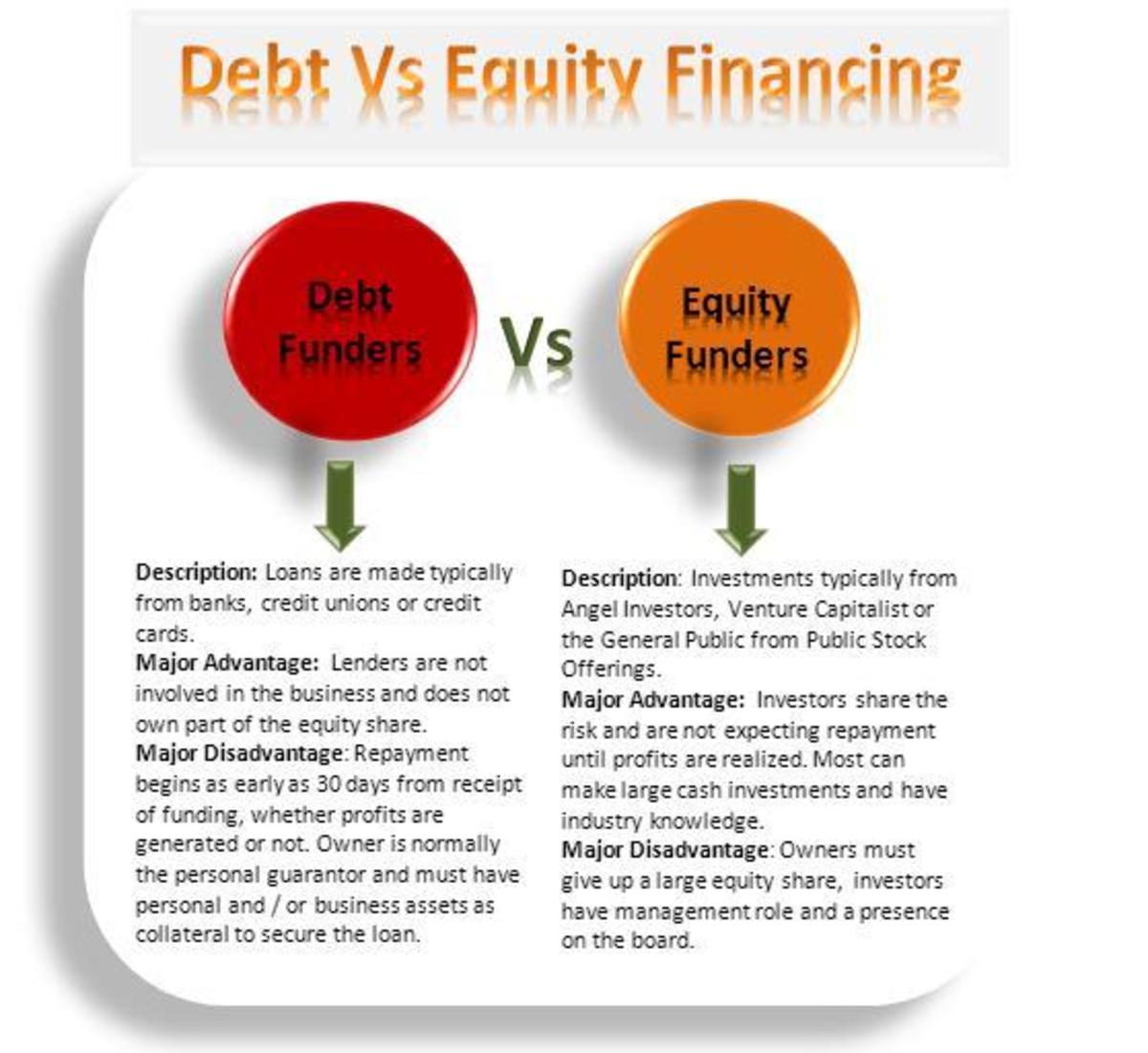4 Ways To Raise Funds For Your Startup
Love it or hate it, funds are the bloodlines of a successful startup. Only a cart fueled with capital can lead you to a revenue-generating business. Nobody would disagree with the fact that most of the startups go defunct in their initial years due to being cash strapped. Funds are not just required for the growth of a startup but are also necessary to ensure invulnerability during taxing times.
That is why every startup founder stalls the streets to find someone who can write a cheque for him. However, fundraising is a brutal process. It is arduous, complex, cumbersome, and most of all ego deflating. While trailing the right path can land you into lucrative partnerships with investors, going the wrong way won't even fetch you their address book.
Why funding is important for early startups?
Money is a major requirement if any business wants to survive. I think nobody would disagree with me that most of the startups fail due to being cash strapped. Another must need of funding for any startup is the cushion that they provide even in most difficult of times. We are talking here about periods of low profits and high expenses. Also, the availability of the necessary amount of funds at the right period of time can be the deciding factor between a successful startup and a failed one. Hence, funding is required to ensure invulnerability during taxing times. Funding is necessary even for purposes such as hiring the right talent, marketing, technology improvement.

How to pitch your product to the investors?
Most of the entrepreneurs think that once they come up with an idea, getting funding is a cakewalk. But that is never the case in the real world. Ideas don’t get funded, products do. Investors don’t get fascinated by a good story, they look for a compelling product and a persuasive strategy.
Introduce your vision like the headline of a newspaper. Before telling the entire story to the investors, tell them the core idea of it. Only then you would be able to cement your innovative product in their mind. Once that is done half of the problem is solved. The rest half relies on the business plan that you choose to back your idea with. It should indicate your company’s financial projections for the next three to five years.
But who are these potential investors? Who are the ones who will open their doors for your startup? Who will instill confidence in your startup and drop in funds for you? As the crowd for funding is increasing gradually, the chances of securing investment are getting slimmer. However, there are four potential sources that you can rely upon to channelize some capital.
Open the wallets of your friends and family:
Obtaining investment for the seed round is the most challenging part of raising funds. While banks and investors usually hesitate to fund new ventures, friends and family serve as a silver lining.
Not only is cash available quickly in this case, but also there is no loss of equity to the owner. Most of the funding from friends and family takes the form of a loan. Hence, you don’t need to liquidate your ownership over the startup. Also, there is no hard and fast rule for collateral security. The repayment options are easy and the interest rates flexible.
Raising money from personal sources also demonstrates that you are well grounded in a network of acquaintances that has an eye into business plans. It also shows that you are serious about your venture and ready to take risks. This throws a positive light on the startup and helps in attracting funds from professional investors.
However, soliciting money from acquaintances has its downsides as well. Firstly, you might overburden yourself with expectations and a sense of responsibility. This might hinder your concentration and focus on your business.
While family and friends funding can be quite useful it has its own downsides. First of all, you will always a sense of responsibility and might overburden yourself with expectations. This might hamper your focus and concentration. There is also a risk of losing friends and having strained relationships in case of business losses.
To avoid such ambiguities, try to record such investments in writing, preferably in legal documents. There should be transparency regarding the nature of the investment as to whether it is a gift, a loan, or an equity investment
Call upon some Angel investors:
Angel investors are not philanthropists or do-gooders. Rather they are wealthy individuals interested in innovative businesses. Angel investors are seasoned entrepreneurs themselves having exited a business or two and looking for higher rates of returns than that offered by traditional investment channels.
The funds offered by angel investment takes the form of an equity investment or convertible debt. These investors are not really interested in getting their money back. Rather they invest on the increasing value of the company in the future. They exchange their money for an equity share in the startup.
Raising funds from angel investors poses fewer risks as compared to debt financing. This is because in the former case, the loan doesn’t need to be paid back in case of losses or failure. Also, there are no payments required by such investors on a monthly basis as is the case with bank loans. They are just interested in the share of their profits equivalent to their investment.
Angel investors are risk-takers. They understand the risks involved in venturing a startup and volunteer to invest their money in the growth of the startup. Moreover, as most of them are entrepreneurs themselves so the experience they bring to the table can help your startup grow rapidly. In addition to financial backing, angel investors also share their expertise, which can be invaluable to the long-term success of your startup.
However, a list of angel investors is very hard to come by as they don’t want entrepreneurs regularly showing up at their doorstep in large numbers. Hence, you need to research thoroughly to find one for your startup. Secondly, such investors want to see their funding paying back in tangible ways and often turn up the heat on startups for the same.
Another drawback is the equity demanded by them. they not only slice a portion of the startup's future profits but also exercise a certain amount of control in decision-making. This may lead to conflicts and disputes.
Woo Venture Capitalists to fund your startup:
Raising venture capital is one of the easiest things a startup founder is ever going to do. You just have to demonstrate high growth potential and funds will fly to your pocket. Venture capitalists finance emerging and early-stage startups in exchange for an ownership stake in the company.
Unlike angel investors who just invest just a few hundred dollars, venture capitalists write million-dollar cheques. This fuels a spectacular growth within the startup. You can make serious investments, hire staff, buy equipment and gear up your success rate. And this investment is not just one-time. You can go back and ask for more.
Another reason why an entrepreneur should go for venture capitalists is that they bring an overall strategy and execution to the table. A venture capital firm can even help with important matters such as management of taxes and legal matters which are very critical during the growth stages of a startup.
As venture capitalists invest in dozens of companies, they hold a bulging directory of powerful contacts. Such connections can be of great resource to a budding entrepreneur. Also, there is a strict regulatory framework in place for VC firms and so the chances of coming across a dubious VC firm are almost minimal.
However, there are certain caveats in this type of funding as well. They only invest in larger markets and revenue-generating firms. Also, they just write a check and give it to you, they expect million-dollar returns as well. VC’s usually buy in 15-45% of company equity to stay close to their investment and have a clear involvement in the venture.
Very often, VC firms place one of their individuals in management. Such forced management leads to conflicts in decision-making processes like capital investment, business expansion, etc. And in case you fail to thrive, you have a large slice of pie to lose.
Arrange crowd funds:
According to Duncan Niederauer, “Crowdfunding will become the future of how most small businesses are going to be financed.” It is a relatively new option and many new-age startups are gravitating towards it.
Crowdfunding is mostly done online with small businesses projecting their projects and ideas to a wider investor pool. Here, a large number of donors contribute small sums coming together as a big goal amount. There are a plethora of websites which serve as popular crowdfunding platforms.
A big advantage of crowdfunding is that the investment is not always equity-based. You will not have to necessarily shell a part of your company’s ownership to raise capital. Reward-based approaches work here quite well. Just make your product available to your investor before rolling it out in public, and he will be happy. Another added advantage of crowdfunding is that you don’t need to pitch your product multiple times to different investors as in case of traditional fundraising methods. Just do it once and it will be visible to a broad range of investors.
Also, it is a low-cost way to spread a word about your startup. Crowdfunding can save you some bucks usually spent on promotion and marketing. And if your campaign gets funded quickly, it signals that your startup is something to look forward to. This increases the visibility of the brand and attracts investors for subsequent rounds of funding.
While crowdfunding may look like one of the best ways to place your idea in front of investors but can easily fail. The most common cause of failure is that the owners are not able to justify their idea. The stress should be on the problem which your idea would be solved rather than concentrating upon the benefits one might be getting. However, one should do his or her homework well before launching a crowdfunding campaign.
Also, you cannot expect an endless supply of money via crowd funds, it is limited. You might have to get back to angel investors once the funds are exhausted. Another grey feature with crowdfunding platforms is that they are there to make money. Startups need to pay 5-10% of fees for raising money which is usually detracted from the available capital.
Conclusion:
Although the funding options are available in plenty, it's you who must decide what will suit your startup the best. While every entrepreneur bootstraps his venture initially, personal funds don’t last long. You will ultimately have to confide in potent investors and capitalists to lend some blood and breath to your startup.
Feedback on the article
Was the article usefull?
This content is accurate and true to the best of the author’s knowledge and is not meant to substitute for formal and individualized advice from a qualified professional.
© 2019 Rohit Manglik








